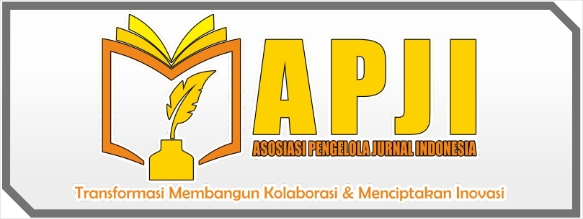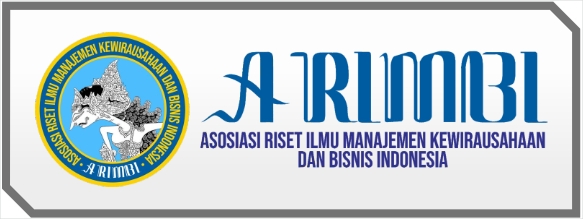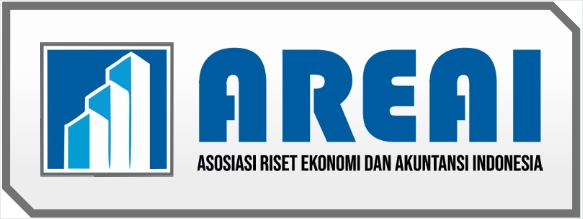Implementasi Program Kota Tanpa Kumuh (Kotaku) di Desa Babussalam Kecamatan Rambah Kabupaten Rokan Hulu
DOI:
https://doi.org/10.58684/jarvic.v3i3.155Keywords:
Program Implementation, Babussalam Village,, City Without Slums Program (KOTAKU)Abstract
This study aims to find out the implementation of the City Without Slums Program (KOTAKU) in Babussalam Village, Rambah District, Rokan Hulu Regency, as well as what factors hinder its implementation. These policy programs include the development of environmental road infrastructure and environmental drainage. The parties involved are the Rokan Hulu Regency Bappeda, the Rokan Hulu Regency Housing and Residential Areas Office, the Babussalam Village Government, the Babussalam Madani BKM, KSM and the Community. This study aims to analyze the Implementation of the City Without Slums Program (KOTAKU) in Babussalam Village and its Obstacles. The theory used is George C. Edward III (2011) In the book Arifin Tahir (2019), there are 4 indicators of Communication, Resources, Disposition, and Bureaucratic Structure. This study uses a type of qualitative research that is descriptive. With Interview, Observation, and Documentation Data Collection Techniques. The results of the study found that the factors that hinder the implementation of the City Without Slums Program (KOTAKU) in Babussalam Village, Rambah District, Rokan Hulu Regency are: 1.) Difficulties in land acquisition. 2.) The geographical condition of the undulating environment of Babussalam Village. The suggestions from theresearch are expected to be 1. The local government of Rokan Hulu Regency and the Babussalam Village government must further increase efforts in alleviating slum areas, especially in Babussalam Village. 2. It is important for the government to consider revisions or improvements to existing compensation policies, by ensuring that the system provides fair and transparent compensation to affected landowners. 3. Use the scope of in-depth technical studies to understand soil characteristics, select appropriate construction technologies, and involve the active participation of the community in infrastructure maintenance.
References
Abidin, Z. (2019). Implementation Of Kota Tanpa Kumuh (KOTAKU) Programs To Enhance The Community Welfare In Malang City, East Java, Indonesia. Department of Social Welfare Science, Faculty of Social Science and Political Science, University of Muhammadiyah Malang.
Adisasmita, R. (2010). Pembangunan Pedesaan dan Perkotaan. Yogyakarta: Penerbit Graha Ilmu.
Agustinus, L. (2008). Dasar-Dasar Kebijakan Publik. Bandung: Alfabeta.
Astuti, A. F. (2012). Implementasi kebijakan penanganan permukiman kumuh di kawasan kota Pekalongan. [Skripsi tidak diterbitkan] Universitas Hasanudin.
Budi Winarno. (2012). Kebijakan Publik: Teori, Proses, dan Studi Kasus. Yogyakarta: CAPS.
Creswell, J. W. (2015). Penelitian Kualitatif & Desain Riset. Yogyakarta: Pustaka Pelajar.
Direktorat Pengembangan Kawasan Kumuh. (n.d.). Program KOTAKU Percepat Penanganan Kawasan Kumuh. Retrieved from https://epkp.ciptakarya.pu.go.id/berita/p/program-kotaku-percepat-penanganan-kawasan-kumuh
Edward, W. (2011). Analisis Kebijakan Publik: Konsep dan Aplikasi Analisis Proses Kebijakan Publik. Bayu Media.
Fadli, M. R. (2021). Memahami desain metode penelitian kualitatif. Humanika, Kajian Ilmiah Mata Kuliah Umum, 21(1).
Hamdi, M. (2014). Kebijakan Publik (proses, analisis dan partisipasi). Bogor: Ghalia Indonesia.
Indra, F. (2017). Implementasi peraturan daerah Kabupaten Sidoarjo Nomor 1 Tahun 2015 tentang pengelolaan rumah sebagai penanganan kawasan permukiman kumuh. [Skripsi tidak diterbitkan] Universitas Brawijaya.
Kadji, Y. (2015). FORMULASI DAN IMPLEMENTASI KEBIJAKAN PUBLIK Kepemimpinan dan Perilaku Birokrasi dalam Fakta Realitas. Gorontalo: UNG.
Kristianti, R. N. (2022). Implementasi Kebijakan Pencegahan dan Peningkatan Kualitas Perumahan Kumuh dan Permukiman Kumuh Studi di Kelurahan Sei Lakam Timur Kecamatan Karimun tahun 2020. [Skripsi tidak diterbitkan] Universitas Negeri Yogyakarta.
Luthfi Muta’ali & Arif Rahman Nugroho. (2019). Perkembangan Program Penanganan Permukiman Kumuh di Indonesia Dari Masa Ke Masa. Yogyakarta: Gadjah Mada University Press.
Mulyana, D., & Nugroho, A. (2019). Kebijakan Publik Cara Mudah Memahami Kebijakan Publik. Serang: CV. AA. RIZKY.
Silalahi, U. (2009). Metode penelitian sosial. Bandung: Refika Aditama.
Sugiyono, P. (2019). Metode Penelitian Kualitatif, Kuantitatif dan R&D. Alfabeta.
Sujianto, Ernawati, Hasim As'ari, & Mayarni. (2012). Implementasi Program Raskin dalam Upaya Meningkatkan Kesejahteraan Masyarakat. Jurnal Kebijakan Publik, 3(2).
Sukari. (2010). Permukiman Kota Dan Masalahnya - Kasus Kota Yogyakarta. JANTRA, V(10), Desember. ISSN 1907-9605.
Sulastri, M. (2021). Implementasi program kota tanpa kumuh (KOTAKU) pada pemukiman kumuh di Desa Baru Kec. Koto Baru Sungai Kota Penuh. [Skripsi tidak diterbitkan] Universitas Negeri Yogyakarta.
Suwito. (2019). Implementasi peraturan daerah Nomor 4 Tahun 2018 di dinas perumahan dan kawasan permukiman kota Binjai. [Skripsi tidak diterbitkan] Universitas Negeri Padang.
Tahir, A. (2019). Kebijakan Publik dan Good Governancy (Cetakan Pertama: Juni 2019). Gorontalo: UNG Press.
Ulfa, A., & Mashur, D. (2022). Implementasi Kebijakan Tata Kelola Retribusi. Cross-Border Journal of Business Management, 5(1), 862-875.
Warna Riau. (2020, November 27). Kementerian PUPR Kunjungi Program KOTAKU di Rokan Hulu. Retrieved from https://www.warnariau.com/read-509-14822-2020-11-27-kementerian-pupr-kunjungi-program-kotaku-di-rokan-hulu.html
Winarmo, B. (2007). Kebijakan Publik: Teori dan Proses. Media Presindo.















